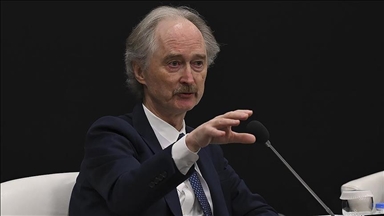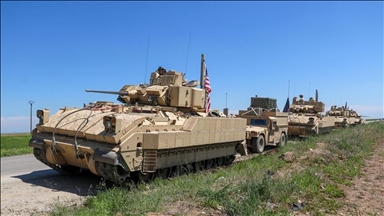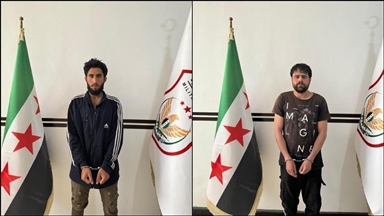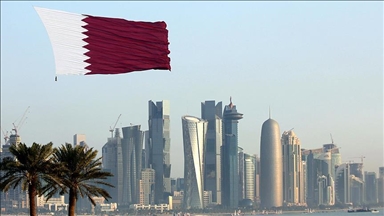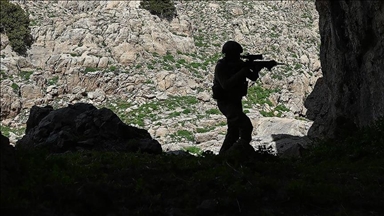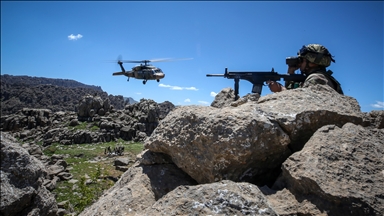Netherlands calls for no-fly zone in Idlib, Syria
Dutch foreign minister to table no-flight zone at EU foreign ministers meeting in Zaghreb, Croatia
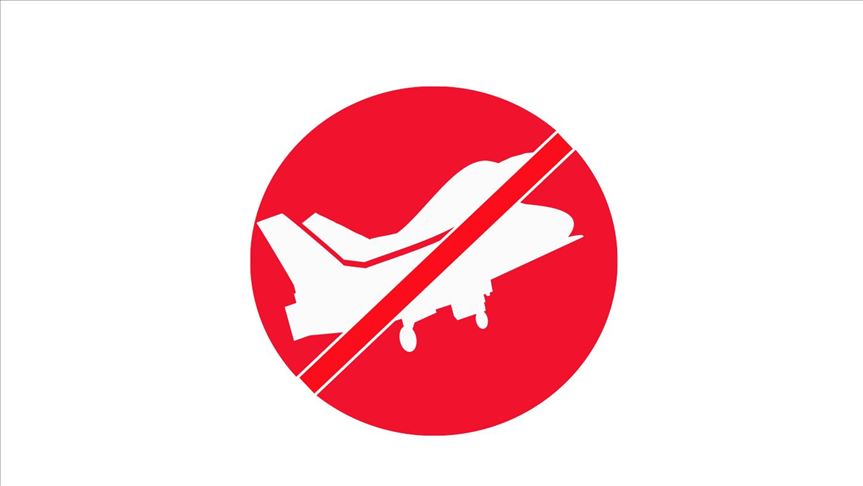
ANKARA
The Netherlands on Friday called for a no-fly zone over Idlib, northwestern Syria, ahead of a meeting of EU top diplomats in Croatia.
"I'm glad that cease-fire has been reached, but we have to see whether it will be sustained. And I still think it would be very wise to add a no-flight zone to the ceasefire, it might be the first step," said foreign minister Stef Blok in a doorstep statement.
"I still think we are very much in need of a no-fly zone because we all have seen terrible reports about the bombings of hospitals in Idlib. And to stop that we will need to turn no-fly zone," he added.
Blok explained the details of his proposal in a statement earlier this week.
"Let us all take a step back and at least ensure that attacks from the air over Idlib are brought to a halt. This means no more Syrian fighter aircraft or helicopters. In other words: a no-fly zone for Assad over Idlib," said Blok.
"The EU needs to consult with Russia and Turkey so that Assad has no choice but to keep his air force on the ground," he added.
"The closure of the airspace over Idlib must then be monitored internationally, and if an airstrike should then occur in Idlib, we will at least know who is responsible," said Blok.
Ankara and Moscow reached an agreement on Thursday to restore a cease-fire among conflict parties in Idlib after days of escalation.
According to the protocol agreed to by Turkish President Recep Tayyip Erdogan and his counterpart Vladimir Putin, the ceasefire began at 00:01 on March 6.
On the protocol, Turkey and Russia, as guarantor countries to observe the cease-fire in Syria, recalled the memorandum on the creation of de‑escalation areas in Syria as of May 4, 2017 and the memorandum on stabilization of the situation in the Idlib de-escalation area as of Sept. 17, 2018.
Both sides stressed the importance of prevention of further deterioration of humanitarian situation, protection of civilians and ensuring humanitarian assistance to all Syrians in need.
Idlib has been a stronghold of the opposition and anti-government armed groups since the outbreak of the Syrian civil war in 2011.
In September 2018, Ankara and Moscow reached an agreement to turn Idlib into a de-escalation zone in which acts of aggression are expressly prohibited.
But more than 1,800 civilians have been killed in attacks by the Syrian regime and Russian forces since then, flouting both the 2018 cease-fire and a new one that started on Jan. 12.
Last week, at least 34 Turkish soldiers were martyred in a regime strike, raising tensions between Ankara and Moscow, an ally of the Assad regime.
The recent escalation has also sent a fresh wave of Syrian migrants toward Turkey's border.
Turkey, which already hosts some 3.7 million Syrian refugees, more than any country in the world, says it cannot absorb another wave of migration and has responded by opening its border to Europe for asylum-seekers.
Anadolu Agency website contains only a portion of the news stories offered to subscribers in the AA News Broadcasting System (HAS), and in summarized form. Please contact us for subscription options.


